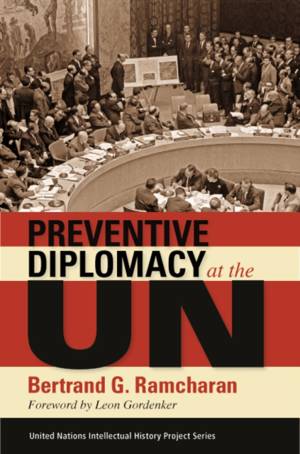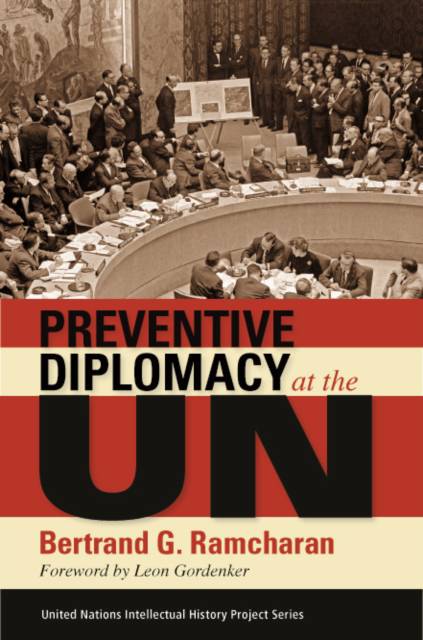
- Retrait gratuit dans votre magasin Club
- 7.000.000 titres dans notre catalogue
- Payer en toute sécurité
- Toujours un magasin près de chez vous
- Retrait gratuit dans votre magasin Club
- 7.000.000 titres dans notre catalogue
- Payer en toute sécurité
- Toujours un magasin près de chez vous
Description
The concept of preventive diplomacy has captivated the United Nations since it was first articulated by Secretary-General Dag Hammarskjöld a half-century ago. Successive generations of diplomats and statesmen have invested in the idea that diplomatic efforts might be able to head off international conflicts and disasters. Dramatic successes, such as the Cuban Missile Crisis of 1962, contrast with dramatic failures, such as the inability of UN efforts to halt the invasion of Iraq in 2003. In this careful study, distinguished former UN civil servant Bertrand G. Ramcharan traces the history of the practice of preventive diplomacy by UN Secretaries-General, the Security Council, and other UN organizations, and assesses the record of preventive diplomacy and examines its prospects in an age of genocide and terrorism.
Spécifications
Parties prenantes
- Auteur(s) :
- Editeur:
Contenu
- Nombre de pages :
- 296
- Langue:
- Anglais
- Collection :
Caractéristiques
- EAN:
- 9780253219831
- Date de parution :
- 07-05-08
- Format:
- Livre broché
- Format numérique:
- Trade paperback (VS)
- Dimensions :
- 160 mm x 236 mm
- Poids :
- 462 g







